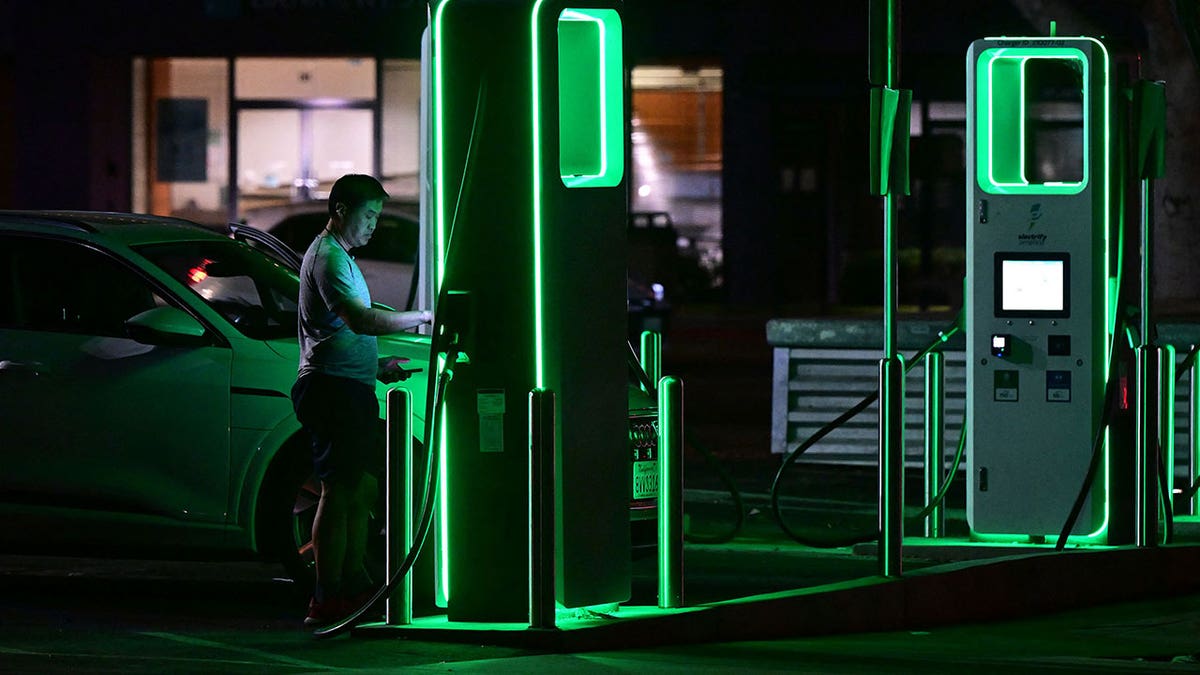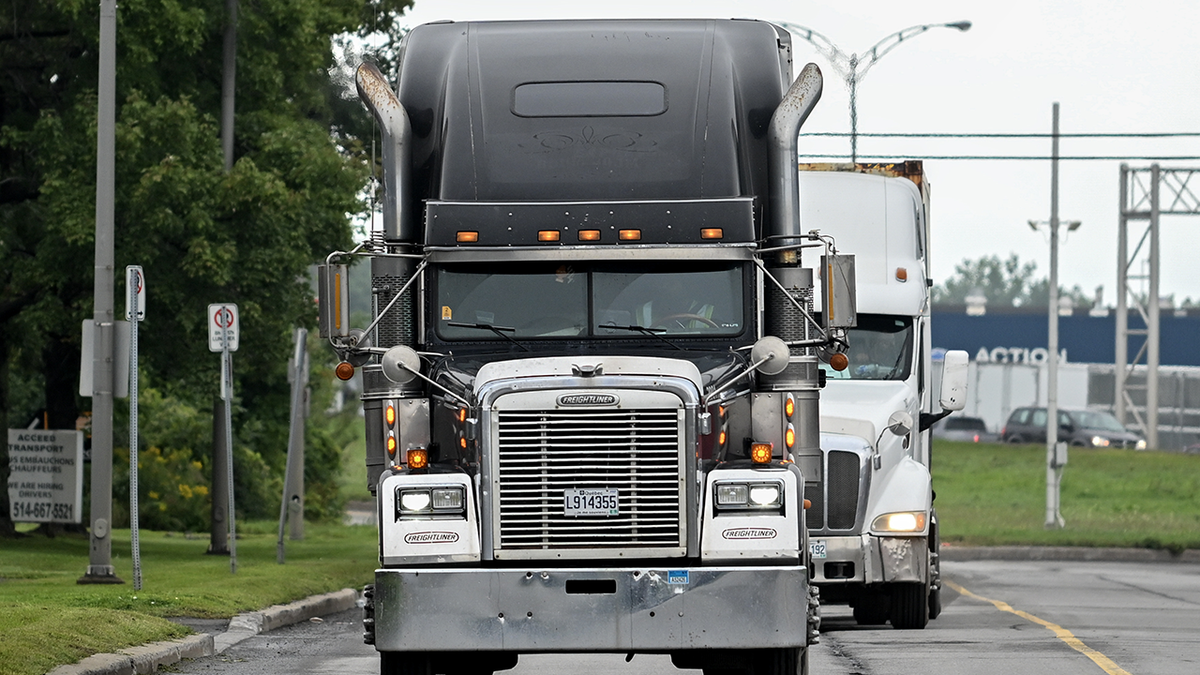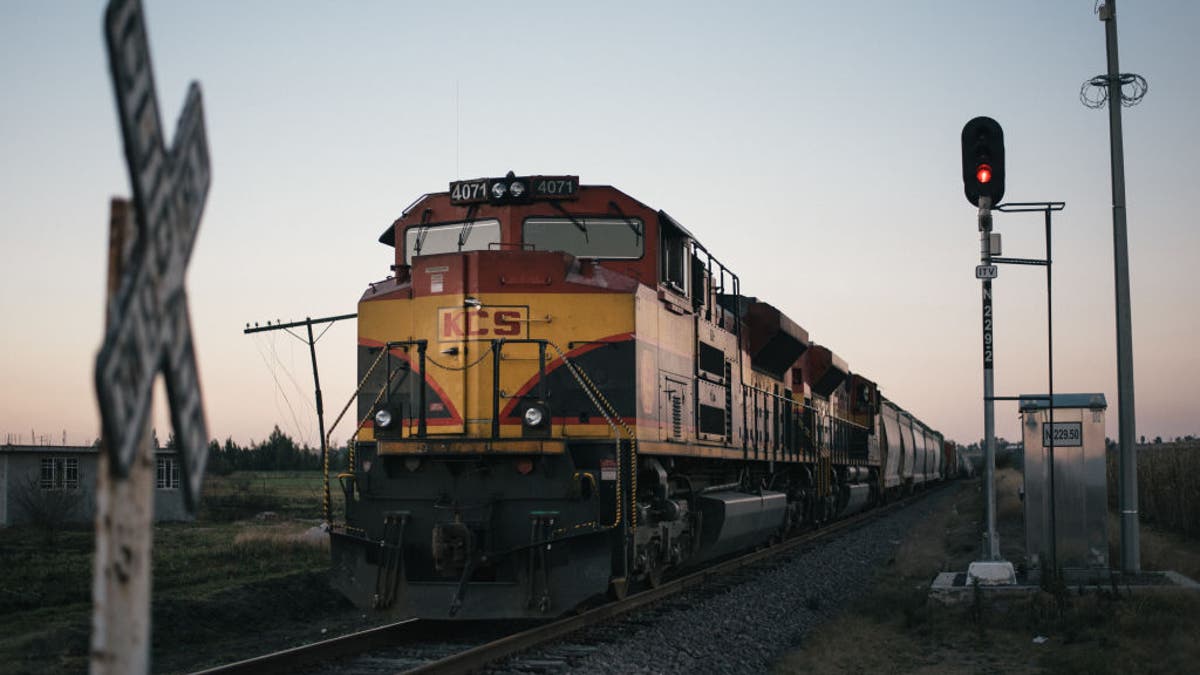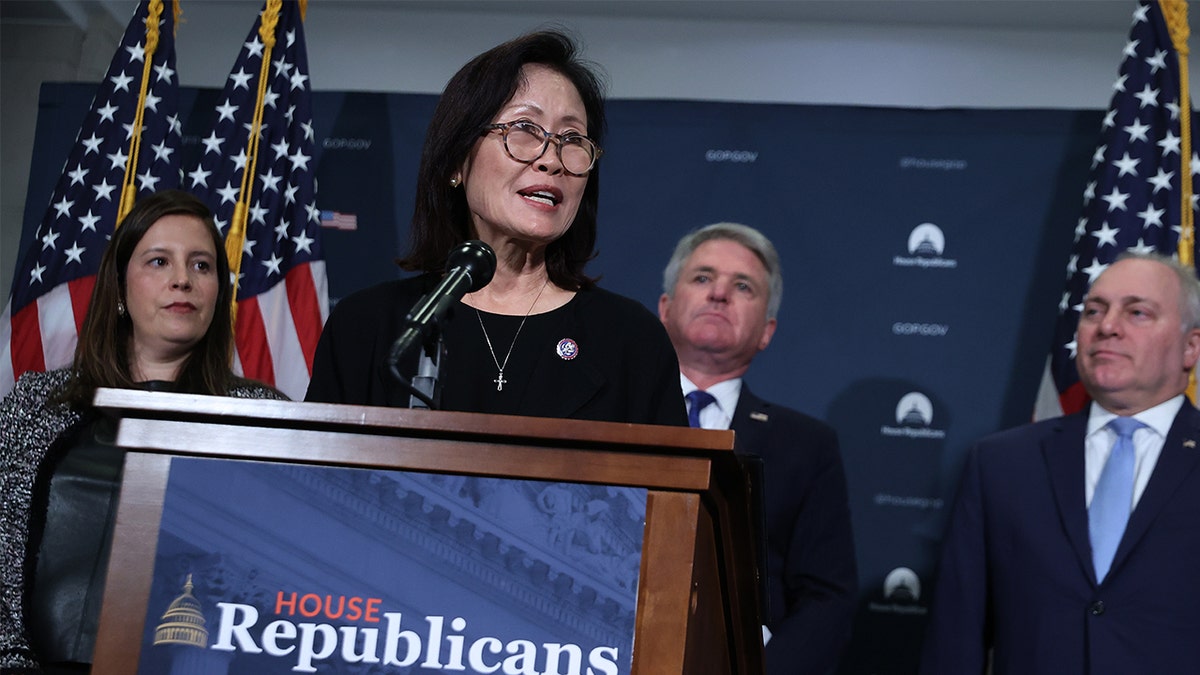California’s state government, under the leadership of Democratic Governor Gavin Newsom, is pursuing a wide-ranging climate agenda targeting the transportation sector, actions that could have significant economic implications.
The California Air Resources Board (CARB), the state’s top environmental regulator, has finalized new rules requiring a rapid transition from traditional oil-powered transportation modes to zero-emission alternatives while pursuing a broad climate agenda. . CARB has identified passenger cars, heavy trucks, freight trains and port vessels for the switch.
“We can solve this climate crisis if we focus on the big, bold actions needed to reduce pollution,” Newsom commented in August 2022.
FEDERAL COURT THROWS DOWN BIDEN’S CLIMATE RULE FOR STATES
The governor’s comments came shortly after CARB finalized regulations that phase out new gasoline-powered cars and require the sale of 100% electric vehicles by 2035. Since then, nearly 20 other states have adopted those rules, bringing which means that more than 40% of the country will be affected by the mandate to some extent.
Environmentalists across the country have set their sights on transportation because of its high carbon footprint and greenhouse gas emissions, which they say are contributing to global warming. According to the latest state data, the transportation sector accounts for 39% of California’s carbon emissions, the largest share of any sector and more than the industrial and energy sectors combined.
California Governor Gavin Newsom has repeatedly pushed policies to accelerate the electrification of his state’s transportation sector. (Getty Images)
The state’s broad effort to electrify its transportation sector is part of the California Climate Commitment unveiled by Newsom two years ago. Under the plan, the state is phasing out dependence on fossil fuels, deploying green energy, reducing greenhouse gas emissions by 85% by 2045, and decreasing oil demand by a staggering 94%.
TRUCKERS CHALLENGE THE SUPPLY ADMINISTRATION FOR THE CLIMATE MEASURE IN LARGE ELECTRICAL EQUIPMENT
The new regulations have received widespread criticism from Republicans, Democrats, consumer groups and industry associations, who argue that such a plan is unworkable and unworkable. In a recent federal filing, the Alliance for Automotive Innovation, which represents major automakers and supports a transition to electric vehicles, said it had “continued concerns about the viability” of the plan.

A driver charges his electric vehicle at a charging station in Monterey Park, California, on August 31, 2022. (Frederic J. Brown/AFP via Getty Images)
“CARB has an ideological commitment to reducing transportation emissions,” said Diana Furchtgott-Roth, director of the Heritage Foundation’s Center for Energy, Climate and Environment. “In particular, they don’t seem to like personal mobility, where people can go wherever they want in any type of vehicle.
“So they say people will have to get used to electric vehicles, whether they like it or not, and go where the charging stations are. This seems to be an ideological, semi-religious and sectarian point of view.”
FORMER AG WILLIAM BARR’S FREE MARKET GROUP SUES CALIFORNIA OVER EV TRUCK MANDATE
In 2023, 9.5% of new light vehicle sales were electric vehicles, up from 7% in 2022 and 4.3% in 2021, according to data from the Alliance for Automotive Innovation. California regulations will go into effect next year, requiring that 35% of model year 2026 car purchases be electric and, a year later, that 43% of model year 2027 cars be electric.
In addition to that mandate, CARB adopted the nation’s most aggressive truck electrification plan in April 2023 and, soon after, regulations targeting freight train emissions. The first requires that large areas of the heavy vehicle sector be electrified by 2035, and the second requires that locomotives begin the transition to zero-emission technology in 2030.

Less than 1% of new truck sales in the U.S. are zero-emission, according to the Truck and Engine Manufacturers Association. (Graham Hughes/Bloomberg via Getty Images)
The American Truckers Association criticized the heavy-duty vehicle rule, saying it sets “unrealistic goals and unattainable deadlines.” And the Association of American Railroads, which is suing California over freight train regulations, said there is “no clear path to zero-emission locomotives.”
“Trade is the lifeblood of the economy and the transportation of goods, most of which is done by truck and many by train as well,” Marlo Lewis, senior fellow at the Competitive Enterprise Institute, said in an interview. “An efficient economy would be one in which transport costs are as low as possible, in line with real safety and environmental concerns.”
FEWER AMERICANS WANT TO BUY A VEHICLE, EVEN AS BIDEN PUSHES CLIMATE CHANGE REGULATIONS STRONGER THAN EVER
Lewis criticized CARB’s rules targeting trucks and freight trains, saying they would have negative economic consequences and potentially lead to higher consumer prices.
The American Truckers Association estimates that trucks will transport a whopping 11.5 billion tons of cargo in 2022, equal to about 72% of the total tonnage shipped domestically. But less than 1% of new truck sales in the U.S. are zero-emission, according to the Truck and Engine Manufacturers Association. And those electric trucks are still much more expensive than diesel models, they say.

In response to California’s regulations, the Association of American Railroads said “there is no clear path to zero-emission locomotives.” (Luis Antonio Rojas/Bloomberg via Getty Images)
Additionally, freight railroads transport another 1.6 billion tons of raw materials and finished products each year, data from the Association of American Railroads shows.
“On a qualitative level, this will greatly increase the cost of national transportation services (private, commercial and industrial). There is no doubt about it,” said Benjamin Zycher, a senior fellow at the American Enterprise Institute.
“Even if you assume and make wild assumptions about the benefits in terms of climate events and everything else, there’s just no way the benefits outweigh the cost. It’s just impossible,” he added.
MAINE REJECTS BROAD ELECTRIC VEHICLE MANDATE IN BLOW TO GOVERNOR’S CLIMATE AGENDA
Additionally, CARB recently amended its regulation on commercial port vessels, requiring a wide range of vessels, including tugs, towboats and barges, to install cleaner upgrades and newer technology. In particular, ships must install diesel particulate filters, a major upgrade that has some groups concerned about safety.
The American Waterway Operators (AWO), which represents the tugboat, towboat and barge industry, has opposed the regulation over fears of diesel particulate filters (DPFs) catching fire. In her op-ed in the DC Journal, Jennifer Carpenter, president and CEO of AWO, wrote:
“While a truck driver can flee a fire, a ship’s crew’s only option may be to abandon ship, which is dangerous and always a last resort. Introduce new fire risks in ports with heavy traffic of combustible cargo “It is also dangerous; imagine the threats to safety, the environment and property if a DPF ignites on a tugboat carrying 110,000 barrels of fuel.”
And the US Coast Guard wrote a letter obtained by Politico in February, informing CARB that it would refuse to enforce the new mandate.

Rep. Michelle Steel, R-Calif., speaks during a news conference in October 2021. (Chip Somodevilla/Getty Images)
Vessel restrictions were also the subject of a recent letter from a coalition of California Republicans led by Rep. Michelle Steel. Lawmakers asked CARB to delay implementation of the rules and consider input from stakeholders.
“CARB seems hell-bent on further crippling our economy and overburdening our workers,” Steel told Fox News Digital. “Whether it’s an absurd mandate that 100% of new car sales be zero-emission vehicles by 2035, or a downright dangerous requirement that tug vessels install defective diesel particulate filters, CARB has established repeatedly regulations that defy logic and harm people.
Rep. Jay Obernolte, R-Calif., called the CARB rule an “overreach” and “pointless.”
“In the case of tow vessels, CARB relies on unproven technology that our own Coast Guard has indicated they will not be able to apply. And when it comes to locomotives, there are no freight locomotives available that meet the zero-emission requirement. of the CARB rule, and the physics of weight and energy density strongly suggest that there still won’t be any when the 2030 rule goal is met,” he said.
CLICK HERE TO GET THE FOX NEWS APP
Lys Mendez, CARB’s communications director, said in a statement that the board has signed a “Clean Truck Partnership” with heavy-duty truck manufacturers such as Ford, Daimler, General Motors, Isuzu, Navistar, Volvo and others in an effort for “working toward shared goals around emissions reduction.”
“The benefits of a zero-emission future are clear to Californians and the state continues to spur innovation that will bring better technology, savings and public health benefits to consumers,” Mendez said. “All CARB regulations are developed as part of a rigorous and comprehensive public process, which includes significant participation from interested parties, such as regulated industries and consumers. As part of each rulemaking, CARB conducts a financial analysis, which includes an evaluation of costs, cost savings and benefits, including public health benefits such as reduced illness, hospitalizations and deaths due to cleaner air.
Fox News digital news editor Jenny DeHuff contributed to this report.









